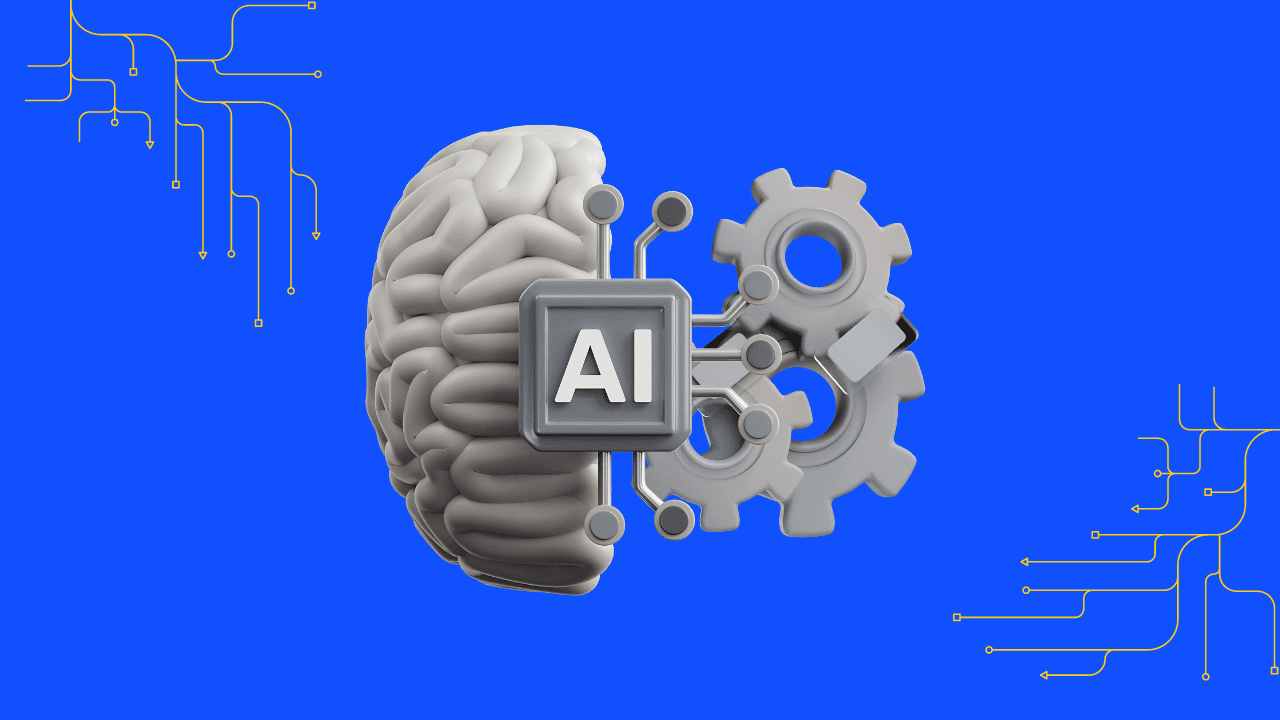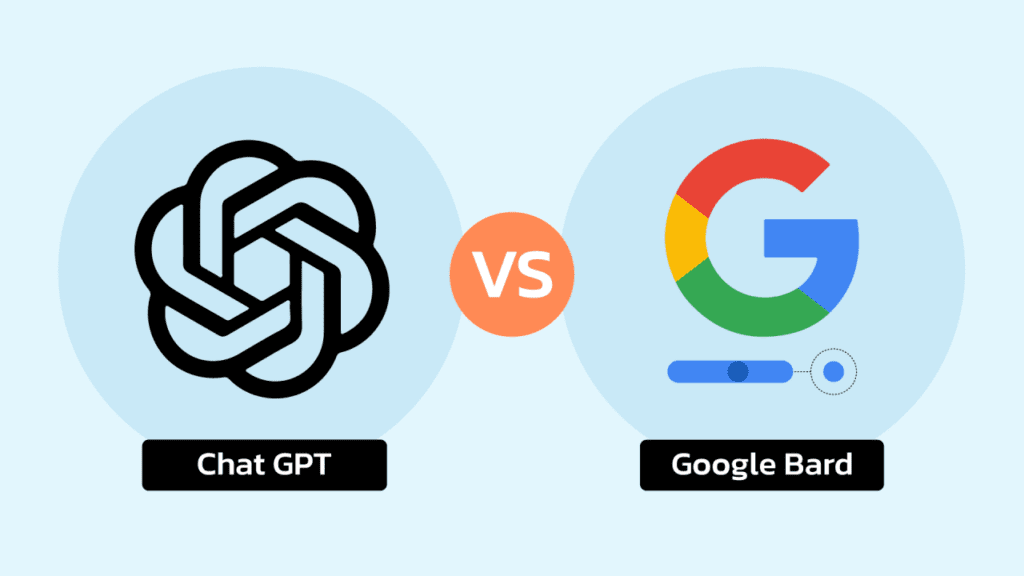
- Digital Strategy, digital marketing, Lead Generation
Recent articles
our mailing list
The SMBs Guide to AI: Conquer 2024 With These Cutting-Edge Tools

Artificial Intelligence (AI) stands at the forefront of technological innovation, offering unprecedented opportunities for small and medium-sized businesses (SMBs). As we step into 2024, the integration of AI tools within SMB operations is not just a trend, but a necessity for those aiming to stay competitive and efficient.
Whether you’re a tech-savvy entrepreneur or new to the realm of digital marketing, this guide will help you understand what the most promising AI tools can do for you and how they can help elevate your business in the coming year.

Understanding AI in Business
At its core, AI involves the creation of algorithms and systems that can learn, adapt, and perform tasks that typically require human intelligence. This includes activities like problem-solving, pattern recognition, and decision-making. For small and medium-sized businesses (SMBs), AI opens up a realm of possibilities, from automating routine tasks to providing deep insights into customer behaviour.
Today, AI is not just about reducing operational costs; it’s about adding value in innovative ways. SMBs can leverage AI for various purposes, such as enhancing customer service through chatbots, improving sales forecasts with predictive analytics, and streamlining supply chain management. Some key Benefits of AI for SMBs include:
- Cost Efficiency: AI can automate mundane and repetitive tasks, reducing the need for manual labour and thereby cutting costs.
- Enhanced Productivity: By automating processes, AI allows employees to focus on more strategic, value-adding activities.
- Data-Driven Insights: AI’s ability to analyse large volumes of data can provide SMBs with insights that were previously inaccessible, aiding in informed decision-making.
- Improved Customer Experience: Personalised marketing, AI-driven customer support, and tailored product recommendations enhance customer engagement and satisfaction.
- Scalability: AI solutions can grow with your business, providing scalable solutions that adapt to changing business needs.
Criteria for Selecting AI Tools for SMBs
Selecting the right AI tool is a strategic decision that requires a balance of cost, ease of use, scalability, support, security, and performance. SMBs must conduct thorough research and possibly seek expert advice to make an informed choice. The right AI tool can not only streamline operations but also provide a competitive edge. Choosing the right tool requires a careful assessment of several key factors:
- Budget Constraints: SMBs often operate with limited budgets, making cost an important factor. It’s crucial to evaluate the cost of AI tools against the potential return on investment (ROI).
- ROI Analysis: Look for tools that offer clear benefits in terms of increased efficiency, reduced costs, or enhanced revenue generation. The ROI should justify the investment in the short to medium term.
- User-Friendly Interface: The AI tool should have an intuitive interface, requiring minimal training for staff. Ease of use ensures higher adoption rates among employees.
- Integration with Existing Systems: It’s vital that the AI tool integrates seamlessly with existing software and systems to avoid disruption in business processes.
- Data Security: Given the sensitive nature of business data, the AI tool must have robust security measures in place.
- Regulatory Compliance: Ensure the tool complies with relevant industry regulations and data protection laws, such as GDPR in the European Union.
- Accuracy and Efficiency: Evaluate the tool’s performance in terms of accuracy of output and efficiency in processing data.
- Uptime and Reliability: The tool should be reliable with minimal downtime, ensuring consistent availability for business operations.
Top AI Tools for SMBs in 2024

Since OpenAI’s release of ChatGT, there have been a seemingly never ending number of new AI tools and chatbots that range from helping you write copy and reports, to helping you stay on track of your fitness goals and mental health. There’s basically an AI for everything these days, that’s why we’ve created this list of all the best ones for you.
We’ll begin with an overview of the top AI platforms that can help you with a range of activities. Then, we’ll dive into a list of AI tools tailored to meet your specific needs, whether it’s for copywriting, report generation, productivity, and more. For even moree tools, check out our AI library.
Best Overall AI Tools for SMBs
1. ChatGPT
Pricing: Free version available with ChatGPT-3. ChatGPT Plus which uses GPT-4 (and had access to the internet) costs around $30 AUD per month.
Core Features:
- Arguably still the best generative AI on the market, and is capable of performing thousands of tasks for both personal and business needs.
- Has image generation capabilities with DALL-E integration.
- GPT-4 uses a Bing integration, allowing it to provide up-to-date information. Additionally, due to ChatGPT’s popularity, the application has dozens of well made plugins to enhance the usability of the AI chatbot.
Developed by OpenAI, ChatGPT has emerged as a game-changer in customer service and content creation, with its ability to understand and generate human-like text enabling SMEs to automate responses to customer queries, draft emails, generate creative content, and ensure consistent, high-quality communication; especially in its Plus version, ChatGPT offers advanced text generation and processing capabilities, assisting SMEs in creating content, automating customer service responses, and generating emails or reports, while its integration with DALL-E provides unique opportunities for businesses in creative fields to generate visual content alongside text.
2. CoPilot (formerly Bing Chat)
Pricing: Free.
Core Features:
- Integration with Microsoft’s Bing search engine.
- Enhanced language capabilities for search and conversation.
- Advanced AI models for accurate information retrieval and interaction.
CoPilot (formerly Bing Chat), is Microsoft’s foray into AI-driven search engines, which offers an intuitive and interactive way to find information. For SMBs, this means enhanced market research capabilities and quicker access to business-critical data. Bing Chat’s conversational approach simplifies complex searches, turning data gathering into a more efficient and user-friendly experience.
Best Fit: Particularly useful for SMBs focusing on online presence and marketing, needing advanced search capabilities and SEO optimization tools. Businesses reliant on Microsoft’s ecosystem would find seamless integration beneficial.
Pricing: Free, and offers unlimited number of prompts and answers.
- Integration with Google’s vast data and search capabilities.
- Advanced language understanding and generation.
- Is able to provide the most accurate, up-to-date information given Google’s background compared to a majority of competitors.
Google Bard, developed by Google, brings the power of AI to everyday business tasks. It can analyse trends, assist in decision-making, and provide insights based on large datasets. For SMBs, Google Bard acts as a virtual assistant, offering strategic advice backed by data and helping in predictive analytics.
Best Fit: Best for businesses that require up-to-date information and data analysis, especially those in sectors where access to the latest data and trends is crucial, like market research or digital marketing. Additionally, Google Bard is better at coding and SEO research than other LLM’s like ChatGPT.
4. Claude
Pricing: Claude has a free version, and a premium version called Claude Pro for $20 per month, similar to ChatGPT Plus.
Claude is an AI chatbot developed by Anthropic. It was first released in March 2023. Claude AI, with its large context window, is adept at handling extensive conversations and complex queries, making it suitable for businesses that require detailed, context-heavy customer interactions. Its per-token pricing model can be cost-effective for businesses with varying usage levels.
Best Fit: Ideal for businesses requiring advanced conversational AI for customer service or for those needing a highly capable AI language model that can manage detailed and lengthy interactions, like legal or technical consulting services.
Best AI Tools for Marketing

1. WriteSonic
Pricing: Writesonic also offers different pricing tiers, including a free trial. For a small team it’s $13 a month, for the freelancer package it’s $16, and for the enterprise package it’s $500+
- Generation of content such as blog articles, product descriptions, ad copies, and landing pages.
- Catering to digital marketing needs, including SEO optimisation.
- Quick transformation of ideas into well-crafted, engaging text.
2. Copy.ai
Pricing: This platform offers multiple pricing plans including a free version, Pro at $36 a month, team at $186 a month, Growth at $1000 a month and Scale at $3000 a month.
- Generation of compelling marketing materials like social media posts and email templates.
- Contextual understanding for tailored content that resonates with specific audiences.
- User-friendly interface for quick and efficient diverse content generation.
Copy.ai is an AI-powered tool focused on automating the creation of marketing copy. It’s designed to help users generate compelling and creative written content, including social media posts, product descriptions, email templates, and more. Copy.ai uses AI to understand the nuances of language and style, enabling it to produce copy that resonates with specific audiences.
Best Fit: This tool is particularly useful for small businesses, startups, and entrepreneurs who need to create high-impact marketing materials but may not have the resources to hire professional copywriters. It’s known for its user-friendly interface and ability to generate diverse content quickly and efficiently.
3. Jasper.ai
Pricing: This platform offers yearly and monthly billing options. For a a yearly subscription the service costs $39 a month for their Creator package, $59 per month for the Pro package and for Business enquiries you’ll need to talk to the Japer.ai team to get a quote.
- Advanced generation of blog posts, marketing copy, and creative content.
- Context-aware content production with coherent and engaging output.
- Various templates and frameworks for diverse content types.
Jasper AI, formerly known as Jarvis, is a versatile AI content creation tool. It excels in generating high-quality written content, such as blog posts, marketing copy, and creative writing. Jasper AI leverages advanced language models to understand context and user requirements, producing content that is coherent, engaging, and tailored to specific needs.
Best Fit: This tool is valuable for marketers, content creators, and businesses looking to streamline their content creation process. It offers various templates and frameworks to assist users in producing a wide range of content types, making it a popular choice for SMBs and digital marketers seeking efficient and creative content solutions.
Integrating AI into Your SMB
Choosing the right AI tool isn’t the only important decision to make, but integrating it into your business effectively is also important. After all no AI can work well if you don’t correctly integrate it with your business and team.
- Strategic Fit: Make sure AI aligns with your big-picture goals.
- Understanding AI: Get to grips with what AI can realistically achieve.
- AI and People Power: Use AI to enhance, not replace, human skills.
- Spotting Opportunities: Identify where AI can make a real impact in your organisation.
- Data Savvy: Understand the data AI needs to work its magic.
- Right Tools and Talent: Have the infrastructure and the skilled people ready to go.
Embracing AI isn’t just about technology; it’s about people too. It’s vital to educate and train your team to work alongside AI, addressing any AI-related concerns head-on. Start small with your AI projects, learn from them, and then scale up. This approach not only makes the journey smoother but also embeds a culture of continuous learning and innovation. Here’s the gist:
- Culture is Key: Build a culture that’s excited about AI and innovation.
- Learning and Development: Invest in training your team to be AI-savvy.
- Demystifying AI: Clear up any myths about AI stealing jobs.
- Start Small, Think Big: Begin with manageable AI projects and expand as you learn.
- Never Stop Learning: Foster a mindset of ongoing adaptation and learning.
Future AI Trends and Predictions for SMBs
As we approach 2024, the landscape of artificial intelligence is evolving rapidly, heralding significant changes across multiple sectors. Generative AI is advancing, creatively synthesising new content across various mediums, from text to audiovisuals. Here are some of the biggest expected predictions for AI in 2024:
- Generative AI: Continues to advance, creating new tools for text, video, image, and audio generation.
- Multimodal AI Models: Enhancing AI effectiveness by processing a blend of data types for more accurate results
- AI Democratisation: Increasing accessibility of AI tools, integrating them into everyday life and work.
- Personalisation: AI enables highly personalised experiences, transforming communication and user engagement.
- Industry Applications: AI’s impact is broadening, with new use cases in healthcare, education, manufacturing, and more.
- Ethics and Regulation: Growing focus on regulating AI to address risks like bias, privacy concerns, and misinformation by governments and private organisations.
Challenges and Considerations
As organisations strive to harness the power of AI to enhance efficiency, drive innovation, and gain competitive advantages, it’s crucial to navigate the complexities and challenges that come with this technological advancement. In this blog, we delve into the multifaceted world of AI in business, exploring the key challenges and considerations that companies face as they embark on their AI journey.
- Data Privacy and Security: AI systems often require access to large amounts of data, raising significant concerns about data privacy and protection. Ensuring compliance with data protection regulations, such as GDPR, and implementing robust security measures are imperative for safeguarding sensitive information.
- Bias and Fairness: There’s a risk of AI algorithms perpetuating and amplifying biases present in their training data, leading to potentially unfair or discriminatory outcomes. This is particularly pertinent in areas like recruitment, lending, and customer service, necessitating active efforts to identify and mitigate bias.
- Regulatory Compliance: With the regulatory landscape for AI in a state of flux, businesses must stay informed and compliant with emerging laws and guidelines to avoid legal and ethical pitfalls.
- Ethical Considerations: AI poses broader ethical issues, including potential impacts on employment, privacy, and human autonomy. Companies need to consider these factors and develop AI responsibly.
- Integration Challenges: Incorporating AI into existing business processes can be complex and disruptive, requiring careful planning, staff training, and often significant changes to workflows and systems.
- Skill Gaps and Training: The effective use of AI necessitates specialised skills. Businesses may face challenges in recruiting talent or need to invest in training for existing employees.
- Reliability and Trust: Ensuring transparency and reliability in AI systems is crucial for gaining and maintaining trust, as AI decision-making processes can sometimes be unpredictable or opaque.
- Costs and ROI: Implementing AI can be costly, considering technology, talent, and potential disruptions. Businesses must carefully evaluate the return on investment, weighing long-term benefits against short-term costs.
- Scalability: AI solutions need to scale with business growth, which can include managing larger data sets and maintaining consistent performance and adaptability.
- Customer Perception and Brand Impact: The way customers perceive a company’s use of AI can significantly impact the brand. Balancing AI efficiency with maintaining a human touch is crucial, especially in customer-facing applications.
Final Thoughts
The journey into 2024’s AI-driven future is not just about adopting new technologies; it’s about adapting to a changing world where AI is an integral part of our growth, decision-making, and success. With careful planning and strategic implementation, the potential of AI tools in 2024 can be harnessed to unlock unprecedented possibilities and drive us towards a more intelligent and efficient future.
Remember, the future of AI is not just about what technology can do; it’s about what we, as a society, choose to do with it. Let’s embrace these trends with both excitement and responsibility, shaping a future where AI enhances our lives and work in meaningful ways. For more information on how you can use AI to improve your lead generation and brand reach, check out our services.

Article by
Simon Gould
CEO / Founder / Dad
Founder and leader, Simon established SDM back in 2012. Since then, he has helped 150 clients (and counting) to achieve their digital goals.[…]







